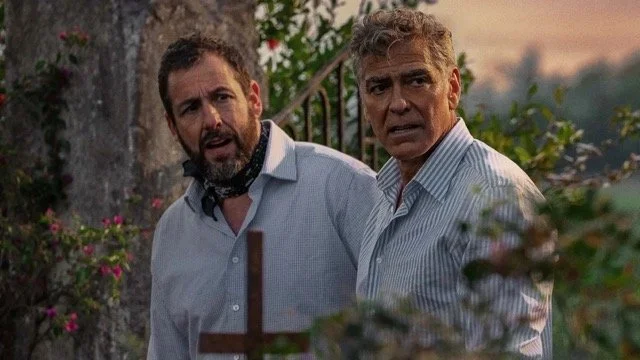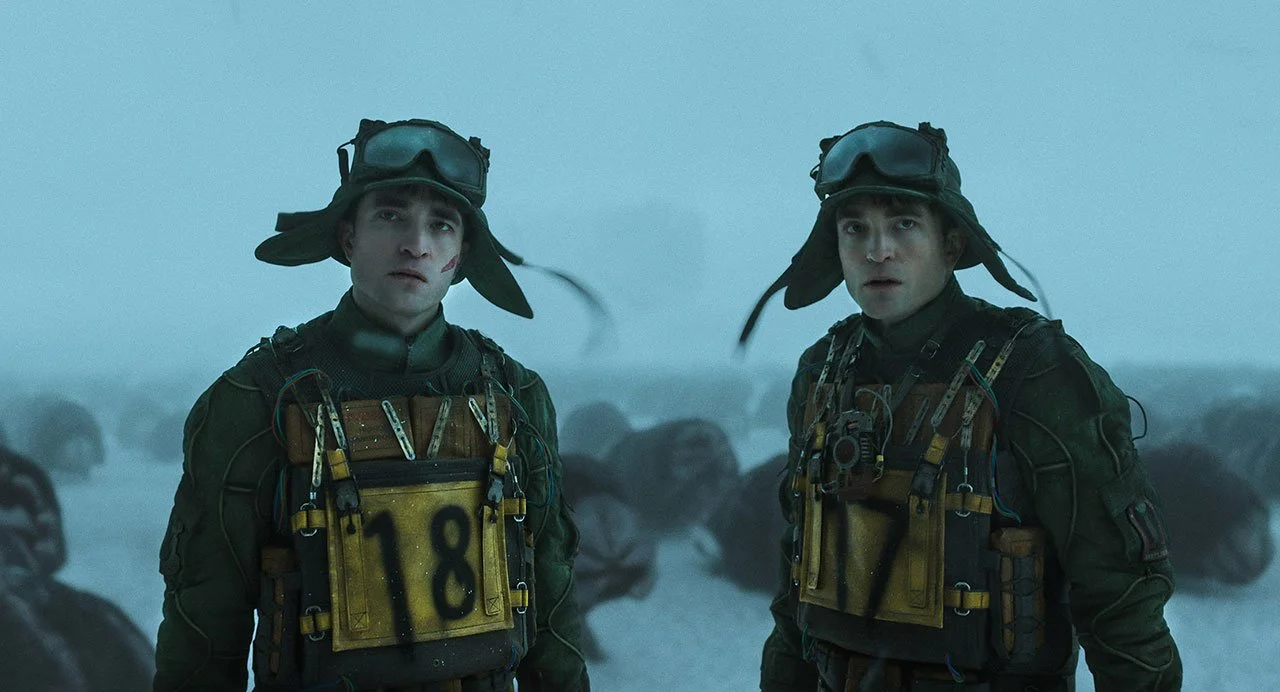A Rocky Friendship
If we’re being honest, we’ve all felt the primal urge to be cool—and with it, pushed beyond the limits of our own comfort or good sense. In the mundane sense, these moments pass without much impact, or perhaps they inflect our memories of an adolescence we’ve moved on from. For Tim Robinson’s Craig in Friendship, though, these moments are chronic enough to roughly constitute his existence.
As Andrew DeYoung’s cringe comedy begins, the problem isn’t that Craig is trying too hard. He’s simply not trying. He has a beautiful wife, Tami (Kate Mara), and a decent job (working as a consultant to make apps and products “more habit forming”). Why accept the invite from the new neighbor when you can watch the latest Marvel instead? Why expand your clothing style when you’ve found the one brand (Ocean View Dining) that fits you perfectly? When the new neighbor proves to be local weatherman Austin (Paul Rudd), who collects ancient artifacts and still plays in a rock band, Craig is drawn in. If you haven’t heard, male friendship is in an anemic state these days, and Austin’s charismatic warmth makes Craig desperate to build—and cling to—this newfound relationship.
Anyone familiar with Robinson’s comedy (I Think You Should Leave, Detroiters) will feel right at home with Friendship. The most immediate calling card is the (punctuated, repetitive) moments of turbulent yelling, as when Craig drops his phone, or drops his phone again, or drops his phone again. For many this marks yet another aggro male comedian marked by screaming; it’s a critique that’s not exactly wrong, but Robinson also makes clear the pathetic impotence behind such rage. Robinson also excels at subtler physical comedy, demonstrated in the way he holds himself when Tami reveals some uncomfortable truths in a support group or the way he reacts to an odd offer from a phone store employee. (There’s a moment where Craig mouths along to a teleprompter at a news studio that is funnier than the majority of his histrionics.)
Friendship is a cringe comedy at heart: true to his nature, Craig pushes things too far with Austin, and he can’t handle the eventual rejection. There are loud echoes of The Cable Guy, but Craig is never so manipulative or demonic as Jim Carrey’s character. Instead, Craig is just hurt. “You all accepted me way too fast. You can’t do that!” he laments, not knowing how to move on.
While this is all in Robinson’s wheelhouse, DeYoung makes an imprint, as well. This otherwise broad comedy carries an unexpected soundtrack of synths and choral pieces, giving it a more diagonal feel. Smart shots and camera movements punctuate the film just enough to keep it from feeling predictable. The script is uneven, but its high points are surprising and genuinely funny, which certainly can’t be said for every comedy. There are particular line readings that I’m sure will still be lodged in my head a decade from now.
“I’m out of ideas, man.” So says Craig at his nadir. In so few words, he also finds an apt diagnosis for the modern studio comedy. But DeYoung and Robinson find fertile ground with Friendship. It’s not a consistent success, but it does indicate a promising opportunity for the resurrection of the genre and for the comedy star that Robinson could very well become in the coming decade.



